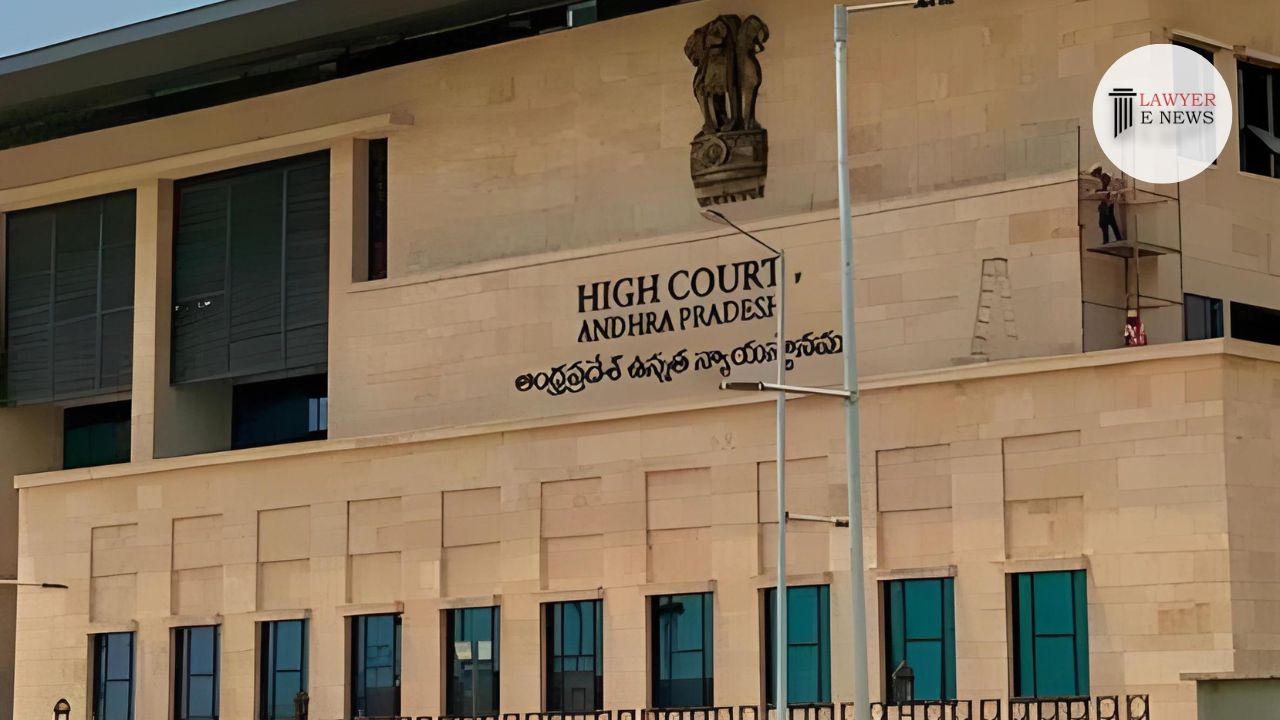-
by Admin
16 February 2026 1:47 PM



The Andhra Pradesh High Court, in a judgment delivered on 21st February 2025, dismissed a second appeal filed under Section 100 of the Code of Civil Procedure (CPC), stating that "a second appeal is not a rehearing of facts or a forum for reassessment of evidence." The court ruled that the findings of both the Trial Court and the First Appellate Court were "based on proper appreciation of evidence and do not warrant interference."
The case revolved around a property partition dispute within a Hindu joint family, where the plaintiff sought her rightful one-third share in the ancestral property. The defendants, who were her father and brother, contended that she had relinquished her rights at the time of her marriage and that they had lawfully sold the property to third parties. The plaintiff challenged these transactions, alleging fraud and collusion to deprive her of her legitimate share.
The Trial Court decreed in favor of the plaintiff, holding that she was entitled to partition and separate possession of her share. The defendants appealed before the Senior Civil Judge, Puttur, but the appellate court affirmed the Trial Court’s findings, ruling that "the plaintiff's undivided share could not have been sold without her consent, and such a transfer was legally unenforceable."
Aggrieved by the concurrent findings, the defendants approached the Andhra Pradesh High Court in Second Appeal No. 436 of 2022, arguing that the lower courts had erred in rejecting their defense. They claimed that the plaintiff had executed a relinquishment deed and that the third-party purchasers had acquired valid title.
Justice Venuthurumalli Gopala Krishna Rao, while dismissing the appeal, reiterated the limited scope of second appeals under Section 100 CPC, stating: "A second appeal is not a tool for reappreciation of evidence. It can only be entertained if there exists a substantial question of law. Mere disagreement with lower court rulings does not justify invoking the jurisdiction of this court."
The High Court observed that the defendants had failed to produce any registered relinquishment deed, and their claim that the plaintiff had surrendered her share was "mere assertion without legal proof." Rejecting the defendants’ arguments, the court ruled: "The plaintiff’s right to her ancestral property is well established. At best, the defendants could have alienated their own share, but they had no authority to transfer the undivided share of the plaintiff."
The court also dismissed the claim of the third-party purchasers, holding that they were not bona fide buyers since they had acquired the property while the partition suit was still pending. The court ruled that "any purchase made during the pendency of litigation is subject to the final outcome of the case, and such buyers cannot claim superior rights over the lawful co-owner."
Rejecting the appeal at the admission stage, the High Court upheld the concurrent findings of the lower courts, ruling that: "The law does not permit the reopening of settled factual disputes under the guise of a second appeal. No substantial question of law arises, and there is no illegality in the decisions of the lower courts. The appeal is accordingly dismissed."
With this decision, the Andhra Pradesh High Court reaffirmed that second appeals cannot be used as a means to prolong litigation in the absence of substantial legal issues, ensuring that procedural delays do not override rightful claims.
Date of Decision: 21 February 2025
